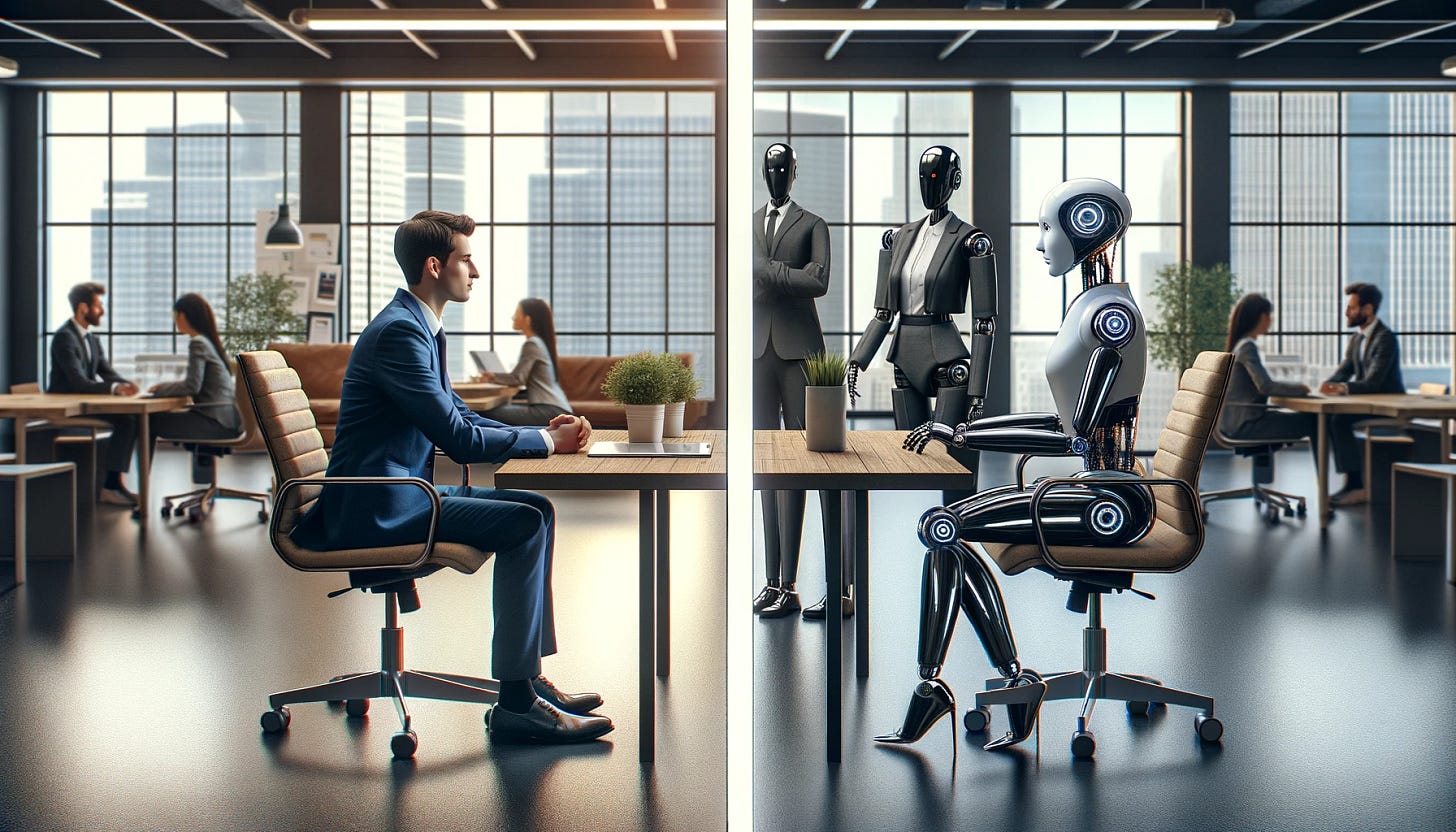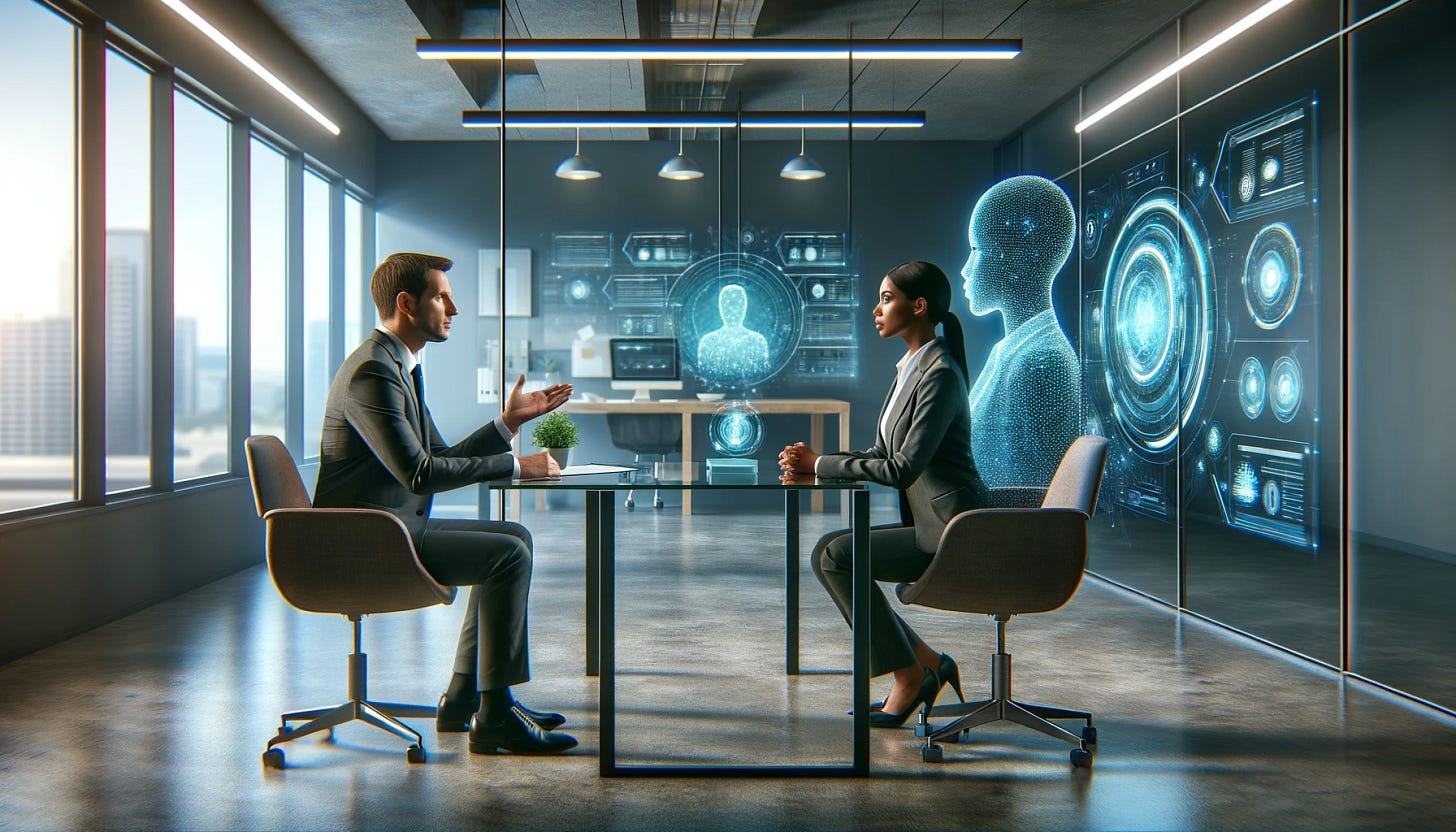Are Job Interviews Becoming Obsolete in the Age of AI?
Explore why job interviews still hold significant value in the AI-driven era and how they are adapting to integrate new technologies effectively.
As a recruiter, you've no doubt noticed the buzz around hiring algorithms in recent years. More and more companies are exploring how artificial intelligence and machine learning could help them find the perfect candidate faster and more efficiently. With all this focus on the power of predictive hiring tools, it's natural to wonder: are job interviews becoming obsolete?
Not so fast, says new research by Vikram Bhargava and Pooria Assadi. Their work suggests that in-person interviews provide unique value that goes beyond just assessing a candidate's skills and fit. In fact, this study introduces a whole new way of thinking about the purpose of job interviews - the "value of choice" theory.
As it turns out, having a human decision-maker make that final hiring determination, based on an in-person interaction with the candidate, may be more important than we realized. And critically, the value isn't just about better hiring outcomes. It also affirms key human and organizational needs throughout the hiring process.
So before you trade in your interview room for an algorithm, let's take a closer look at what this research found and what it means for the future of hiring. As you'll see, job interviews aren't just a means to an end - they are a meaningful and worthwhile practice in their own right.
The Limitations of Interviews for Predicting Performance
Now, you might be thinking: "Wait a minute. I thought the whole point of job interviews was to assess candidates and predict their future performance." And you'd be right. Traditionally, interviews have been seen as a vital tool for employers to gauge a candidate's skills, experience, and organizational fit before making a hiring decision.
But here's the problem: a growing body of behavioral evidence suggests that we humans are actually pretty bad at predicting job performance based on interviews alone. Research has consistently shown that unstructured interviews - the free-flowing conversations that typify most hiring processes - are particularly prone to biases and errors in judgment.
Even more striking, studies have found that in many cases, algorithmic hiring tools are actually better than human interviewers at assessing candidate fit and predicting future success. Today's sophisticated machine learning models can rapidly analyze vast amounts of data to identify the key attributes and experiences that correlate with high performance in a given role.
So if interviews aren't always great at fulfilling their stated purpose, and algorithms can often do the job better, it's no wonder that some have started to question the value of interviews altogether. Many experts have argued that the substantial time and resources companies devote to in-person interviews might be better spent elsewhere.
But before we write off interviews as an outdated practice, the work of Bhargava and Assadi suggests we need to reconsider their purpose and value. The researchers argue that organizations aren't just looking to maximize predictive accuracy in hiring - they are also seeking to realize important forms of non-instrumental value. And on that front, interviews remain essential.
To understand why, let's take a closer look at the researchers' "value of choice" theory of interviewing, which offers a novel perspective on the real reasons interviews matter in the age of algorithms. As we'll see, human choice is far from obsolete - in fact, it might be the key ingredient that makes hiring meaningful and worthwhile.
The "Value of Choice" Theory of Interviews
So what exactly is the "value of choice" theory, and what does it tell us about the importance of job interviews? In their paper, Bhargava and Assadi draw on the work of philosopher T.M. Scanlon to argue that having a human make the final hiring choice, based on an in-person interview, generates three key forms of value:
Instrumental value
This is about achieving desired hiring outcomes. When a recruiter or hiring manager gets to interact with a candidate face-to-face, they feel more confident in their ability to choose the right person for the job. Even if algorithms can sometimes outperform human judgment, the sense of control and agency that comes with making the hiring decision can be powerfully motivating.
Representative value
Interviews allow an organization's values and priorities to be directly expressed through the hiring choice. By selecting a candidate based on their own judgment, a recruiter or hiring manager gets to affirm what the company stands for and what it's looking for in its employees. This "representative" value matters because it aligns the hiring process with the organization's identity and culture.
Symbolic value
Being entrusted to make hiring choices based on interviews is a way of signaling a recruiter or manager's status and competence within the organization. It's a mark of respect and a sign that they are qualified to exercise meaningful autonomy in their role. Denying someone the opportunity to make an important choice like this can feel demeaning or disempowering.
Viewed through this lens, the value of job interviews goes far beyond their utility as an assessment tool. By giving human decision-makers the chance to exercise choice in the hiring process, interviews serve vital expressive and symbolic functions. They allow an organization to enact its values, and they affirm the status and capabilities of the people involved in hiring.
Once we recognize this deeper significance, it becomes clear that fully automating the interview process would come at a serious cost. Yes, algorithmic tools can improve predictive accuracy and efficiency. But they can't replace the profound non-instrumental value that human choice provides. The "value of choice" theory suggests that even in the age of AI, job interviews are here to stay.
Why Fully Algorithmic Hiring Would Be a Mistake
If algorithms are often better than humans at predicting job performance, why not just automate the hiring process entirely? Wouldn't that be the most efficient and effective approach?
Not so fast, say Bhargava and Assadi. Their research suggests that even if we could perfect algorithmic hiring (which is a big "if"), relying on machines alone to make hiring decisions would be a serious mistake. Here's why:
First and foremost, fully automated hiring would mean losing out on the representative and symbolic value that human choice provides. When recruiters and hiring managers get to make the final call based on an in-person interview, it affirms the organization's values and priorities in a direct, tangible way.
It also signals trust and respect for the people charged with building the company's workforce. Taking away that autonomy and responsibility could lead to a sense of disempowerment and alienation.
Moreover, the "value of choice" theory suggests that human involvement in hiring is crucial for promoting meaningful work relationships. When a candidate knows they were chosen based on a real human connection and assessment, it can foster a deeper sense of belonging and investment in the organization. They feel seen, valued, and selected in a personal way - not just processed by an impersonal algorithm.
Conversely, being hired based solely on machine judgment could feel cold, distant, and demotivating. It might even sow doubts about one's true fit with the company culture. After all, if human interaction wasn't important enough to factor into the hiring decision, what does that say about the organization's values and priorities?
There's also a risk that fully automated hiring could lead to a sense of infantilization among recruiters and managers. Being deprived of such a fundamental professional choice may feel like being treated as less than fully competent or trustworthy. Over time, that erosion of autonomy and agency could take a serious toll on morale and engagement.
So while the predictive power of hiring algorithms is undeniably impressive, the risks of relying on them too heavily are real and significant. The "value of choice" theory reminds us that human judgment and human relationships are irreplaceable - not just for making good hires, but for building strong, values-driven organizations.
Why Job Interviews Still Matter in the Age of Algorithms
With machines increasingly able to predict job performance, it's tempting to think that human judgment is becoming obsolete. But Bhargava and Assadi's research suggests that this view is shortsighted.
Their "value of choice" theory reveals that interviews aren't just about assessment and prediction - they also serve vital expressive and symbolic functions. By giving human decision-makers the opportunity to exercise choice, interviews allow organizations to affirm their values, build meaningful relationships, and respect the autonomy of their people. These forms of value can't be automated away.
Bhargava and Assadi's work reminds us that job interviews aren't just a means to an end, but a meaningful practice in their own right. They are a way of expressing what we value, forging real connections, and making choices that shape the future of our organizations. Even in an age of algorithms, that "value of choice" is something worth protecting and celebrating.
So to all the recruiters and talent professionals out there: keep conducting those interviews with confidence and care. Know that you are not just assessing candidates, but affirming your organization's deepest priorities and potential. And never forget the profound human value of the choices you make every day.
The future of hiring may be high-tech, but it will always be deeply human at its core.
Share this article or any other article to unlock exclusive premium content (guides, strategies, insights) behind a paywall. Discover how to do it here!
Envisioning a Balanced Approach to Hiring
If fully algorithmic hiring is a bridge too far, but traditional interviews alone aren't always effective, what's the solution? According to Bhargava and Assadi, the answer lies in this:




